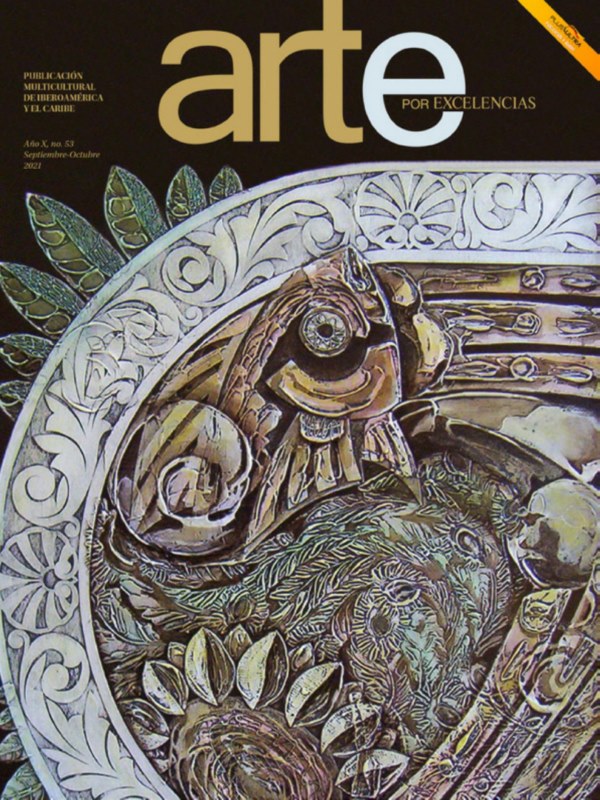I close my eyes and I can see the photo of the nineties, now lost in the digital age: he stands in a simple park of his native town Mayari, with his hand on the chest like suffocating the beating, and eyes all temper, ready to explode. Behind, it's like a keyboard would have fitted vertically to the center, where the face of the sweet woman have been modeled in plaster, the one who gave him his first piano lessons when he was five, when he played the instrument "by ear".
Around him, hundreds of people begin to applaud the unveiling of the monument to his mother, Altagracia Tamayo, as if he was playing his best opus to graduate from a concert pianist with honors at the Tchaikovsky Conservatory; or as he'd just raised the second prize in the Teresa Carreno contest in Caracas. And he would be the first Latin American soloist that inaugurated Schauspielhausde hall in Berlin; and the first Cuban to debut in the Philharmonic in Osaka. And Prague had given him later the opportunity to interpret the famous Concert No.1 in the same square where Tchaikovsky premiered the piece hundred years ago, leading the orchestra.
For all these reasons, this man always returns to his village, where the road of the troubadours from Santiago de Cuba ended, and a concert band played even a classic or the best of popular music, because is not casual the concert ends with the Chan Chan by Compay Segundo. And he comes up to play an electric piano on a platform in Nicaro, in July 2014, along with Silvio Rodriguez, in the "Tour to the Neighborhoods" with the same dignity and respect that, immediately afterwards, he told the press that is harder to perform with a folk group like "Los Muñequitos de Matanzas" than with the Moscow Philharmonic Orchestra.
It was fair that the Russian ambassador tells him in Mayari that he is the first Cuban who has been honored with the Pushkin Medal, perhaps the highest award to an intellectual in the country, for his life's work and contribution to relations between Cuba and Russia. People from everywhere pay homage to his seventies years and more than half a century on the world stage.
And the acknowledgment speeches do not know where to start: the creator of contemporary Cuban piano school because his disciples without attending the foreign conservatories, have won twenty-seven international awards. Or the fact that he obtained over two hundred prizes; he has written "six hundred fifty works for different formats, from ballets, choirs and symphonies, through works for popular music groups, soundtracks for film, television and radio." (1) And his discography has over two hundred titles, because he is living expression of his contributions to troubadours and soneros, from the new Cuban Trova to the rural, dance and folkoric, popular and lyrical music.
Now Frank Fernandez is going throughout the island, he is acclaimed from city to city: the Sierra Maestra Hall in Havana, on the top floor of the Tryp Habana Libre Hotel overflowed of the ones who did not know how to flatter him the night before his birthday. Holguin gives him the Shield in a crowded Sunol Theater and it was necessary to put screens and chairs in the street; Camaguey gives him also the shield, where more than nine hundred standing people applaud him after a three-hour concert at the Teatro Principal. Or the beautiful colonial La Caridad Theater in Santa Clara, in central Cuba, it seems that the attendees will burst in delirium.
Where he plays is doubly applauded, here because his presence is associated to the opening of Dolores Hall in Santiago de Cuba, or the Minor Basilica of San Francisco de Asis; and because, in the worst days of the crisis, he deliriously insisted to reestablished the climate that preserved the grand piano of Jose Marti Memorial. He helps manage pianos to concert halls for being an exclusive artist of the Stenway brand, as in Holguin where he managed that the Ministry of Culture could buy a Boston piano, which is of excellent quality, if funds were not enough for a grand piano.
Today, deep into the neighborhoods, in Nicaro, or in Pogolotti and Atares, the applause is followed by the play "Quiereme mucho,"by Gonzalo Roig, together with the flutist Niurka Gonzalez. The boldness of playing outdoors seems "a demonstration of the musicality of the Cuban people, of a spirit of complicity ... I have never been so blessed. Everyone, all believers gave me protections, blessed me, among other things, because I opened with the Ave Maria, the most famous of all: Schubert's" (2)
Frank Fernandez will continue to celebrate this year a new series of an exciting artistic and personal life. Art for Excellencies and the Excellencies Group join to the celebration, so that his work continue being planted in the sacred sites of the country, as in Mayari arriba, in the Second and Third Eastern Front, there where the boundaries of the universe are confused with imposing mountains, and the victorious warriors with shield or on the shield escorted by his music await for eternity.
(1) Word tribute in the Sierra Maestra Hall. EGREM evening on the seventy anniversary of Tryp Habana Libre Hotel. March 12th , 2014.
(2) "It is much harder to play with Muñequitos de Matanzas than with the Moscow Philharmonic." Mayari Broadcast. Interview by Alejandro Ramirez and Monica Rivero
Related Publications

How Harumi Yamaguchi invented the modern woman in Japan
March 16, 2022
Giovanni Duarte and an orchestra capable of everything
August 26, 2020











